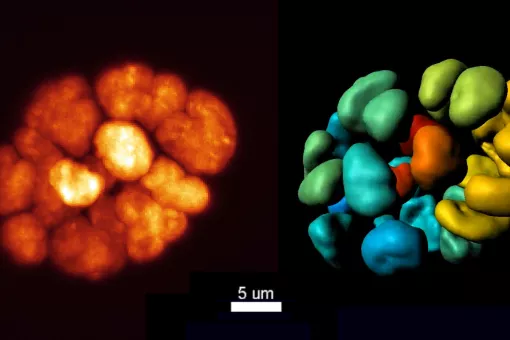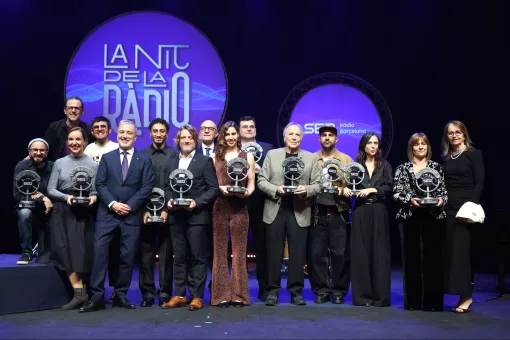Images
The North American scientist Travis Stracker (Ohio, US, 1974) has left his post at the Memorial Sloan Kettering Cancer Center in New York, one of the world’s leading cancer research hospitals, to join the Institute for Research in Biomedicine (IRB Barcelona) this April as head of a new research group in the Oncology Programme.
Travis Stracker will set up a lab devoted to “Genomic Instability and Cancer” to address the way in which cells respond to DNA damage. The recognition of DNA damage triggers very well orchestrated actions that are essential for keeping the cell’s integrity and preventing tumours from developing. Unrepaired DNA errors are features of cancer cells. Stracker uses mouse models that mimic human diseases, such as leukaemia, that are associated with defects in the DNA repair pathways. Using these models, Stracker studies the function of the different components in cell damage control and in cancer prevention. His research interest is to discover new proteins involved in these functions that can be used in future treatments for cancer.
Stracker has been performing research in the field of cancer genetics since obtaining his PhD from the Salk Institute for Biological Studies at the University of California in 2002. Then he moved to MSKCC, where he worked for six years as a research associate in John Petrini’s lab. This lab has identified three crucial proteins for DNA repair, which open up new avenues of research in cancer treatment. Stracker is a Special Fellow of the Leukemia and Lymphoma Society, the organisation that funded his line of research at MSKCC. Among Stracker’s most high profile scientific publications, are “CHK2 suppresses the oncogenic potential of DNA replication-associated DNA damage”, published in Molecular Cell last year, and “The carboxy terminus of NBS1 is required for induction of apoptosis by the MRE11 complex”, appeared in Nature in 2007.
IRB Barcelona attracts talent
In the last two years, IRB Barcelona has hired three new group leaders and five managers for scientific platforms, all from top class European and North American labs: Travis Stracker (Memorial Sloan Kettering Cancer Center, US); Jens Lüders (Stanford University, US); Xavier Salvatella (University of Cambridge, GB); Nick Berrow (University of Oxford, GB); David Rosell (MD Anderson Cancer Center, University of Texas, US); Julien Colombelli (European Molecular Biology Laboratory, Heidelberg, Germany); Stephen Forrow (Beatson Institute, GB); and Herbert Auer (University of Ohio, US). These new members have been appointed on the basis of scientific excellence, future projection and research strategy, following criteria established by the IRB Barcelona directors Joan J. Guinovart and Joan Massagué.
At present, the research performed by the 28 groups at IRB Barcelona is divided into five programmes with overlapping interests: Cell and Developmental Biology; Structural and Computational Biology; Molecular Medicine; Oncology; and Chemistry and Molecular Pharmacology. The Oncology Programme, coordinated by Eduard Batlle, now has four research groups: the metastasis lab (Roger Gomis and Joan Massagué), two colorectal cancer labs (Elena Sancho and Eduard Batlle), and the genomic instability and cancer lab (Travis Stracker). During 2009, two more groups will join the programme.
The 28 groups at IRB Barcelona are provided with support and technical assessment by six high-throughput scientific platforms, which are run by IRB Barcelona and which complement the services and platforms offered by the Barcelona Science Park (Diagonal Campus of the University of Barcelona), in which IRB Barcelona is located.
About IRB Barcelona
The Institute for Research in Biomedicine (IRB Barcelona) pursues a society free of disease. To this end, it conducts multidisciplinary research of excellence to cure cancer and other diseases linked to ageing. It establishes technology transfer agreements with the pharmaceutical industry and major hospitals to bring research results closer to society, and organises a range of science outreach activities to engage the public in an open dialogue. IRB Barcelona is an international centre that hosts 400 researchers and more than 30 nationalities. Recognised as a Severo Ochoa Centre of Excellence since 2011, IRB Barcelona is a CERCA centre and member of the Barcelona Institute of Science and Technology (BIST).




